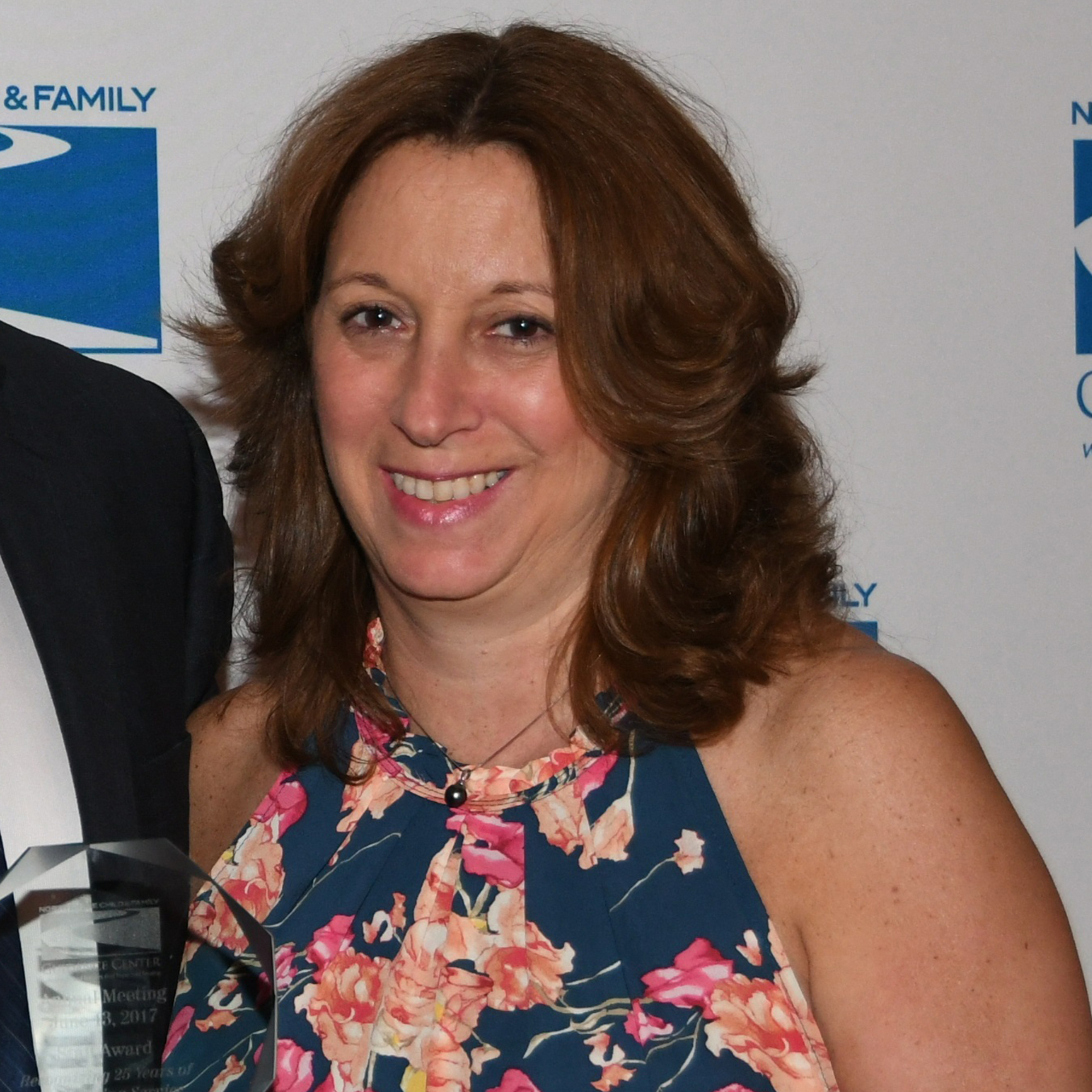North Shore Child & Family Guidance Center promises to work with children and their families from birth to age 24. Does that mean babies get therapy?
Well, not in the traditional model of sitting on a couch and talking about their “issues,” of course. But the Guidance Center does, indeed, provide help for the very youngest clients at our Marks Family Right from the Start 0-3+ Center (RFTS) in Manhasset.
All of the programs at RFTS, which include therapeutic and support services, are led by Dr. Sue Cohen, Director of Early Childhood and Psychological Services, who has been with the Guidance Center since 1991.
“This was my first job,” says Cohen, who received her Ph.D. in Clinical Psychology from St. John’s University. “My passion has always been working with young children, infants and their parents.”
The Guidance Center’s Early Childhood Services are very unique, Cohen says. “Most agencies don’t work with very young children. We have a family-centered approach that helps parents and children manage difficult situations.”
So, what are the types of issues that would make a parent bring in a baby or young child for treatment? Cohen explains: “We help children with a range of problems, from oppositional defiance to attention deficit disorders to learning problems and developmental delays.” Other common concerns revolve around separation issues, trauma, divorce and bereavement.
“We always bring parents and caregivers in to find out what’s going on and to be an active participant in the treatment, as they are active participants in their children’s lives,” she says. “We wouldn’t work alone with a baby; we need to see the parent-child and family interactions. We gather information from multiple sources to help determine if the child is meeting milestones and to see if he or she might need intervention like speech or physical therapy.”
Cohen and other Guidance Center professionals such as the medical director work as a team, conducting assessments and then conferring to determine the best course of treatment. “It’s a whole-team approach,” she says. They also conduct diagnostic testing for children on the autism spectrum, and children with learning disabilities and/or attention problems.
Very often, the mode of treatment involves play therapy. “Play is the child’s main way of learning and communicating,” says Cohen. “We think outside the box and use lots of creative means of relating to the child.”
Back to the Garden
One of those methods involves the use of the organic garden at RFTS (the Guidance Center also has an organic garden at its headquarters in Roslyn Heights). “We use the garden as a metaphor for growth and nurturance,” says Cohen. The staff often teaches the youngsters this poem: “Your mind is a garden, your thoughts are the seeds, you can plant flowers, or you can plant weeds.”
Says Cohen, “Working in the garden helps kids learn lessons about responsibility, collaboration and self-esteem. We tell them they can ‘weed out’ unnecessary behaviors and do things to help support good behaviors. It empowers them. Plus, many children have also used this as an opportunity to step out of their comfort zone and try a new vegetable or two.”
Cohen and her staff also utilize the Nature Nursery, which is primarily designed for our early childhood population of children under six years old. The Nature Nursery features a variety of “tools,” including a rock and water garden, shells, pine cones, wind chimes and more, all designed to help children explore the sights, sounds, smells and touch of nature.
“Six year olds, or sometimes even younger kids, are getting iPads or other tech devices,” she says. “They are losing touch with how to communicate and socialize face to face. When you see two and three year olds having tantrums because their parents don’t want to give them the phone, it’s a problem. They’re being set up to have social and communication problems.”
While learning to navigate technology is important, parental limits for moderation are also important, she adds. “We encourage children and their parents to also play with creative, hands-on activities and age-appropriate games.”
Autism Support
Cohen also runs a group called GASAK, for Grandparent Advocates Supporting Autistic Kids. “We sometimes bring in a speaker from a local support program or an educational advocate or lawyer who can provide information to the grandparents,” she explains. The grandparents often struggle when learning of a diagnosis of Autism Spectrum Disorder and find comfort in knowing that others share their experiences.
“They are sometimes in an awkward position of not knowing how to help if, for example, they are taking their grandchild on outings and they have a tantrum or behave inappropriately. Our goal is to give them the knowledge, tools and support to handle these situations.”
(For more information and advice, visit the American Academy of Pediatrics’ guidelines for technology use.)
What makes the Guidance Center such a great place isn’t only its services; it’s the people who work here, says Cohen. “We have a dedicated and passionate staff that is always looking for creative ways to help our children and their families.”














